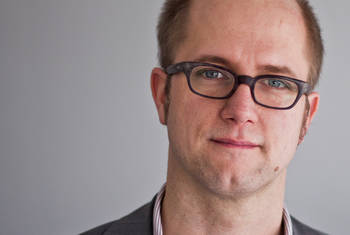Paul Schempp How Does Shadow Banking Influence Financial Stability?
Paul Schempp is Senior Research Fellow at the Max Planck Institute for Research on Collective Goods in Bonn (Germany). He holds a PhD from Bonn Graduate School of Economics. In his research he concentrates on financial economics and applied microeconomics. For his work on liquidity provision by banks, shadow banks and the government, and the implications for financial stability Schempp was awarded the Otto Hahn Medal of the Max Planck society.
Area of Research
Financial Economics, Banking, Applied Microeconomic Theory
since 2015
Senior Research Fellow
Max Planck Society (more details)
Max Planck Institute for Research on Collective Goods
2012-2014
Research Fellow
Max Planck Society (more details)
Max Planck Institute for Research on Collective Goods
2008-2009
Visiting PhD Student
University of California, Berkeley
PhD Program in Economics
2015
PhD in Economics
University of Bonn (Rheinische Friedrich-Wilhelms-Universität Bonn)
Bonn Graduate School of Economics
2009
Diploma in Economics
University of Bonn (Rheinische Friedrich-Wilhelms-Universität Bonn)
Prizes
- Otto Hahn Medal (2016)
- Best Poster Award at the 1st ECB Forum on Central Banking in Sintra, Portugal for the Project “Banks, Shadow Banking, and Fragility” (joint work with Stephan Luck) (2014)
Fellowships
- Scholarship of the “Max Planck Gesellschaft” (2013-2014)
- Scholarship of the “Deutsche Forschungsgemeinschaft” (German Research Foundation) (2009-2012)
- German Academic Exchange Service (DAAD) (2008-2009)
 © Maximilian Dörrbecker
© Maximilian Dörrbecker
Max Planck Society
"The Max Planck Society is Germany's most successful research organization. Since its establishment in 1948, no fewer than 18 Nobel laureates have emerged from the ranks of its scientists, putting it on a par with the best and most prestigious research institutions worldwide. The more than 15,000 publications each year in internationally renowned scientific journals are proof of the outstanding research work conducted at Max Planck Institutes – and many of those articles are among the most-cited publications in the relevant field." (Source)
Institute
Max Planck Institute for Research on Collective Goods
"Many goods are not obviously best provided by unregulated markets. This does not necessarily imply that government does a better job. But research can do society a service in defining why markets have a hard time with some goods, and in comparing institutional arrangements aiming at their provision. In a precise way, the problem is defined by the concept of public goods. Capitalising on the theory of mechanism design, it can be further improved. Using experimental methods, it can be put into perspective. Yet some social dilemmas are better analysed in alternative categories. It may even be preferable to start analytically from the political decision to intervene into markets. The institute tackles these questions from the combined perspectives of economics, law and psychology. While the institute started with applications from environmental problems, current work focuses on antitrust, regulation and financial stability." (Source)
Map
In the banking model of maturity transformation presented in this video, the features of the shadow banking sector and its influences on financial stability are analyzed. As PAUL SCHEMPP explains, the model shows that banks and shadow banks can co-exist without harm to the financial sector as long as the shadow banking sector is small. However, liquidity guarantees from banks to shadow banks and a growing shadow banking sector increase the risk of bank runs.
LT Video Publication DOI: https://doi.org/10.21036/LTPUB10003
Banks, Shadow Banking, and Fragility
- Stephan Luck and Paul Schempp
- ECB Working Paper
- Published in 2014
Banks, Shadow Banking, and Fragility
- Stephan Luck; Paul Schempp
- Unpublished
Chicago









